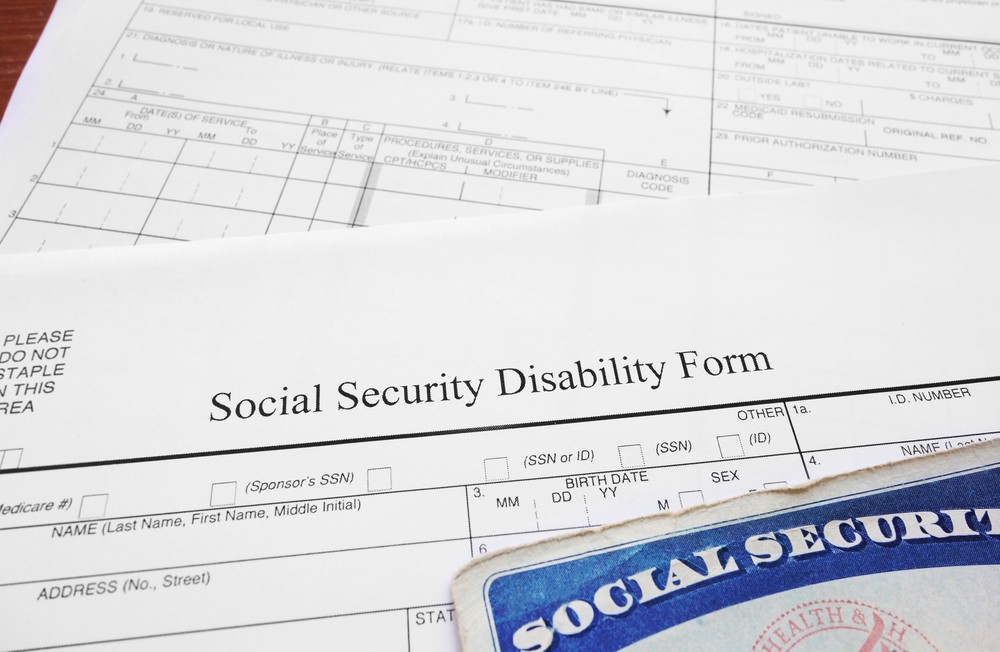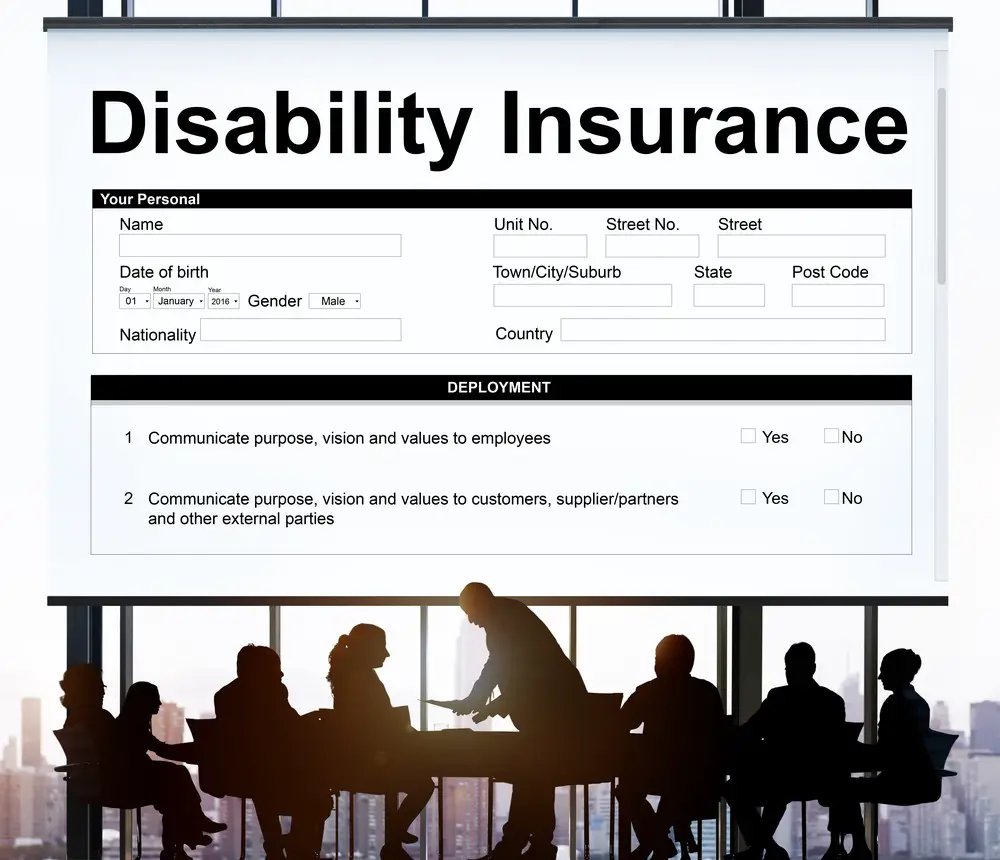As a BetterHelp affiliate, we receive compensation from BetterHelp if you purchase products or services through the links provided
In today’s fast-paced world, the prevalence of anxiety and depression has become increasingly common among individuals. These mental health conditions impact emotional well-being and can significantly interfere with one’s daily life, sometimes even leading to short-term disability. This article aims to guide those struggling with anxiety and depression on how to get their short-term disability claim approved.
First and foremost, proper documentation is crucial to having a successful disability claim. For those dealing with anxiety and depression, it is essential to have a detailed medical record that outlines the extent of the illness, including specific episodes, treatment plans, and any side effects experienced. These records should be provided by a licensed mental health professional working closely with the individual, such as a psychiatrist, therapist, or counselor.
Secondly, open communication with the employer is vital in the approval process. The individual needs to inform their employer about the existing mental health condition and discuss the potential impact on work performance and the need for accommodations. A clear understanding of the diagnoses and the necessary adjustments can lead to a smoother path toward approval for short-term disability.
Understanding Anxiety and Depression
Depression

Depression is a mental health condition characterized by persistent sadness, hopelessness, and a lack of interest or pleasure in activities. It can affect a person’s thoughts, feelings, behavior, and overall health. Some common symptoms of depression include:
- Persistent sadness or an empty mood
- Loss of interest in activities previously enjoyed
- Changes in appetite or weight
- Sleep disturbances
- Fatigue or lack of energy
- Difficulty concentrating or making decisions
- Feelings of worthlessness or guilt
- Thoughts of death or suicide
Anxiety

Anxiety is a normal stress reaction but can develop into an anxiety disorder when it becomes excessive or irrational. These disorders can cause significant impairment in a person’s daily life. Common anxiety disorders include generalized anxiety disorder, panic disorder, and social anxiety disorder. Symptoms of anxiety may include:
- Feeling restless or on edge
- Easily fatigued
- Difficulty concentrating or mind going blank
- Irritability
- Muscle tension
- Sleep disturbances
Mental Health Condition
Both depression and anxiety are mental health conditions that can significantly impact an individual’s overall well-being. They can affect not only the emotional state of a person but also their physical health, relationships, and ability to function in daily life.
Stress
Stress is a normal and natural part of life. However, when an individual experiences high-stress levels for an extended period can contribute to developing or exacerbating mental health conditions such as depression and anxiety.
Symptoms of Depression
| Symptoms | Description |
| Persistent sadness | Feeling down or empty most of the time |
| Loss of interest | No longer enjoying once pleasurable activities |
| Appetite changes | Significant weight gain or weight loss |
| Sleep disturbances | Insomnia or sleeping too much |
| Fatigue | Constantly feeling tired and lacking energy |
| Concentration difficulty | Struggling to focus or make decisions |
| Worthlessness, guilt | Persistent feelings of being inadequate or excessively guilty for mistakes or perceived shortcomings |
| Suicidal thoughts | Thoughts about death or causing harm to oneself |
Physical Symptoms
Physical symptoms often accompany depression and anxiety. Some common physical symptoms may include headaches, muscle tension or pain, stomach upset, and changes in appetite or weight.
Mental Functioning
Depression and anxiety can significantly impact an individual’s mental functioning. This may manifest as difficulty concentrating, memory problems, indecisiveness, and an inability to perform daily tasks as effectively as before.
Panic Attack
A panic attack is a sudden, intense surge of fear, often accompanied by physical symptoms such as a racing heart, shortness of breath, dizziness, and trembling. Panic attacks can be a component of anxiety disorders and are often triggered by specific situations or perceived threats.
Navigating Disability Benefits
Short-Term Disability Insurance
Short-term disability insurance provides temporary income replacement for individuals unable to work due to a non-work-related illness or injury. This type of coverage usually lasts between three to six months. Again, reviewing your specific policy for details on coverage, benefit amounts, and duration is essential.
Short-Term Disability Benefits
If you are experiencing anxiety or depression that prevents you from working, short-term disability benefits may provide financial support during this difficult time. Benefits typically range from 50% to 70% of your pre-disability income, depending on your specific plan. Consult your insurance provider to understand the benefits you are entitled to.
Eligibility
To be eligible for short-term disability benefits, you must meet specific criteria outlined by your insurance provider. This may include the duration of your employment, hours worked per week, and any pre-existing conditions. Ensure that you are familiar with your employer’s specific requirements for eligibility.
Qualifying Condition
Anxiety and depression can be considered qualifying conditions for short-term disability benefits if they prevent you from performing the essential functions of your job. In most cases, a medical professional must provide documentation, such as a diagnosis, treatment plan, and estimated condition duration, to support your claim for benefits.
Waiting Period
A waiting period, also known as an elimination period, is the time between the onset of your disability and the start of your benefits. Waiting periods for short-term disability can vary, typically from one to 14 days. During this time, you will not receive any benefits. Be aware of your specific policy’s waiting period and plan accordingly.
Remember, every policy is different, so it’s essential to understand the specific terms and conditions of your short-term disability insurance when navigating the process. Reach out to your insurance provider for clarification when needed.
Medical Documentation and Assessments
Doctor
It is crucial to consult a doctor to evaluate symptoms and determine the need for short-term disability due to anxiety, depression, or panic disorder. A thorough assessment will help the doctor diagnose specific conditions and recommend the best treatment options. Additionally, accurate documentation of the assessment, including the severity of the condition, is essential for the approval of short-term disability.
Anxiety Disorder
To obtain short-term disability for anxiety, medical documentation should demonstrate the disorder’s significant impact on the individual’s daily life. Examples of supporting evidence may include:
- A thorough diagnosis by a licensed mental health professional
- Medical records detailing the condition’s history and severity
- Notes from therapy or counseling sessions
- Reports of any medication prescribed
Clinical Depression
For short-term disability related to depression, the documentation should provide evidence of the individual’s difficulties in performing everyday tasks and functioning at work. Key elements may include:
- A diagnosis of clinical depression by a mental health professional
- Records of treatment, such as therapy sessions and prescribed medications
- Any reports of hospitalization or other measures taken due to the severity of the condition
Panic Disorder
To substantiate a claim for short-term disability due to panic disorder, the medical documentation should showcase the following:
- A diagnosis of panic disorder by a qualified mental health professional
- Details of any medical treatments or therapies undertaken
- Any instances of debilitating panic attacks disrupting the individual’s daily activities or work performance
In all cases, the submitted medical documentation and assessments should demonstrate the necessity of short-term disability for the individual’s recovery and well-being. Proper and accurate records will significantly increase the likelihood of obtaining approval.
Legal Protection and Assistance
FMLA
The Family and Medical Leave Act (FMLA) provides eligible employees up to 12 weeks of unpaid, job-protected leave for specific medical and family reasons, including anxiety and depression. To qualify, you must work for a covered employer, have worked at least 1,250 hours in the last 12 months, and have a serious health condition affecting your ability to perform your job.
Disability Lawyer
Hiring a disability lawyer can significantly increase your chances of getting short-term disability approved for anxiety and depression. They can guide you through the application process, gather necessary medical documentation, and navigate the complex legal system on your behalf. Many disability lawyers work on a contingency fee basis, meaning they only get paid if your claim is approved.
Americans with Disabilities Act (ADA)
The Americans with Disabilities Act (ADA) prohibits discrimination against individuals with disabilities and requires employers to provide reasonable accommodations for employees with mental health conditions, including anxiety and depression. In addition, if your condition substantially limits one or more major life activities, such as working, you may be protected under the ADA.
Reasonable Accommodations
Reasonable accommodations are modifications to a job, work environment, or schedule that enables a person with a disability to perform their job effectively. Some examples of accommodations for anxiety and depression may include:
– Flexible scheduling
– Adjusted break schedule
– Remote work options
– Noise-cancelling headphones
– Written job instructions
Workers’ Compensation
While anxiety and depression can be challenging to prove as work-related conditions, obtaining workers’ compensation benefits is possible if your mental health issues are directly linked to your job. To pursue a claim, you must demonstrate that your anxiety or depression resulted from a specific work-related incident, such as a traumatic event or chronic work stress.
Application Process and Documentation
Disability Claims
To apply for short-term disability due to anxiety and depression, one must start by filing a claim through their disability insurance provider. The claim request should include details of the condition and medical documents verifying the diagnosis. Then, consult your insurance policy for specific requirements.
Insurance Policy
Reviewing your insurance policy is crucial in understanding the coverage and terms of your disability insurance plan. Some policies require a waiting period, while others only cover specific mental health conditions. Ensure your anxiety and depression meet the eligibility criteria.
Mental Health Professional
A mental health professional’s involvement is essential in documenting your anxiety and depression. The practitioner will assess your condition and provide a detailed evaluation, treatment records, and the anticipated duration of your disability. This documentation will support your application for short-term disability benefits.
Social Security Administration (SSA)

Although the SSA does not handle short-term disability, it is essential to note that they offer benefits for long-term disability due to anxiety and depression. For short-term disability, the application process mainly involves your insurance provider and the employer’s human resources department.
Human Resources Department
Your employer’s human resources department is critical in facilitating the application process, as they provide necessary forms, guide you through your employer’s specific requirements, and handle communication with the insurance provider. Therefore, it is advised to maintain open communication with HR during the application process.
Pre-Existing Conditions
If you have a pre-existing condition, your eligibility for short-term disability benefits might be affected. Your insurance policy may outline specific exclusions or requirements regarding pre-existing conditions. Be aware of your policy’s stance on pre-existing conditions and ensure proper documentation if it applies to your situation.
To summarize, to get short-term disability approved for anxiety and depression, one should carefully review their insurance policy, consult a mental health professional for proper documentation, and work closely with their human resources department and insurance provider. Remember the potential impact of pre-existing conditions on your eligibility for benefits.
Additional Supports and Treatments
Treatment
Getting short-term disability approved for anxiety and depression may require documenting and demonstrating the treatments you are receiving. Prescribed medications, such as antidepressants or anti-anxiety drugs, can be vital to treatment. Ensure you have a record of prescribed medications and dosages to attach to your claim.
Therapy
Seeking professional help from therapists can be another crucial aspect of your support system. Cognitive-behavioral therapy, group therapy, and individual counseling are all therapeutic approaches that can assist with anxiety and depression. Make sure to collect documentation of therapy sessions and frequency from your therapist to include in your claim.
Online Therapy
Online therapy has become more prevalent in recent years, providing a convenient option for individuals dealing with anxiety and depression. In addition, this type of therapy allows for more flexible scheduling and access to a broader range of therapists. Include any pertinent online therapy details in your documentation, such as platform, session frequency, and therapist information.
Psychologist
Consulting with a psychologist can provide objective assessments and evaluations to diagnose and treat your mental health condition. In addition, a psychologist’s evaluation may be critical in substantiating your claim, as they can offer documented evidence of your anxiety or depression symptoms and severity.
Financial Assistance
Short-term disability claims may qualify you for financial assistance, easing the burden of lost income due to your mental health condition. Check with your insurance provider or employer to determine the eligibility requirements for financial assistance programs. Maintain all relevant financial documents to submit with your claim.
Family and Medical Leave Act
The Family and Medical Leave Act (FMLA) is a U.S. law that provides eligible employees up to 12 weeks of unpaid, job-protected leave per year for medical reasons, including mental health conditions like anxiety and depression. To qualify for FMLA, ensure you meet the eligibility requirements, including working for a covered employer and completing adequate service hours. In addition, document your FMLA leave, if applicable, to ensure a comprehensive claim submission.
FAQs
- 3 Ways Wearing a Hat Can Help Lower Your Stress Levels - April 19, 2025
- Breaking the Silence: Why Men’s Mental Health Matters More Than Ever - April 15, 2025
- How to Transform a Home’s Patio Space into a Relaxing Space - March 23, 2025
This site contains affiliate links to products. We will receive a commission for purchases made through these links.



